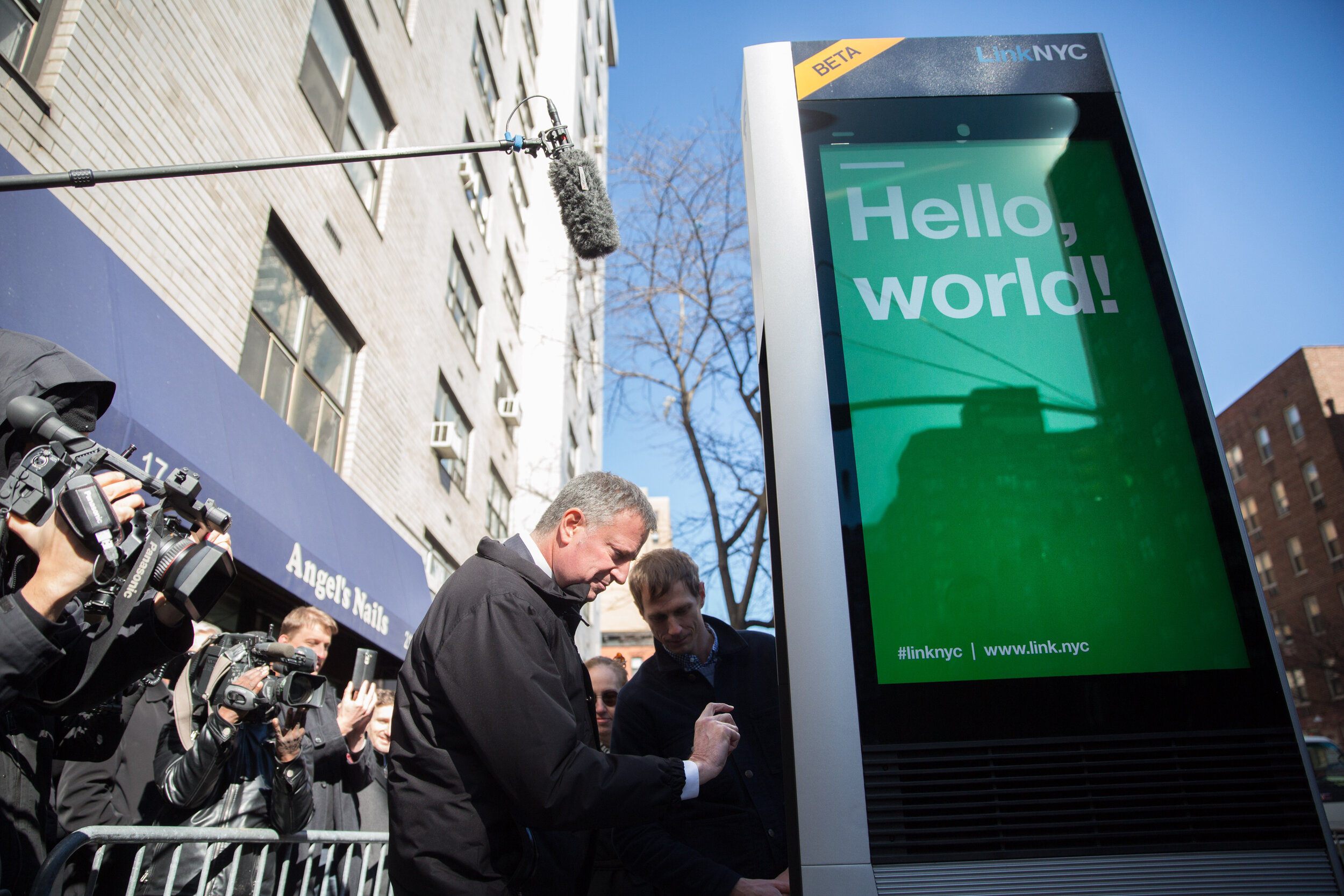NYC commits $157 million to shrinking digital divide
/Mayor Bill de Blasio uses a WiFi-enabled LinkNYC kiosk in 2016. On Wednesday, he announced a $157 million commitment to expanding broadband internet access in New York City. Richard Appleton/Mayoral Photography Office
By David Brand
New York City will commit $157 million to expand affordable internet service and narrow the digital divide across the five boroughs, Mayor Bill de Blasio said Wednesday.
The city has issued requests for proposals for telecommunication companies to wire public spaces, street poles and city-owned property for broadband internet and 5G service, de Blasio said.
As business, social life and other tasks move increasingly online, internet access has become a necessity, similar to a public utility, he said.
“We wouldn't say, oh, sorry, your home doesn't have electricity, but, you know, down the block they have electricity, that's OK,” de Blasio told reporters. “We would never say that. But, in fact, that's what the digital divide is when it comes to internet access.”
Yet, nearly one-fifth of New Yorkers lack home or mobile internet. The digital divide has a particular impact on low-income communities of color and older adults, impacting various aspects of daily life from communicating with family during the pandemic, to submitting for legal paperwork to booking a COVID-19 vaccine appointment.
The city has begun setting up wifi in NYCHA developments and plans to finish implementing broadband internet at family homeless shelters next year. The administration has faced pressure from advocates for low-income New Yorkers and various organizations who say internet access is a matter of equity and justice.
The new commitment will allow internet providers to wire 7,500 street poles for 5G and to expand service on property owned by city agencies.
“All New Yorkers deserve affordable internet access, no matter their zip code,” de Blasio said. “With this historic effort to invest in broadband and 5G infrastructure, we are making tremendous strides toward closing the digital divide once and for all.”
The effort depends in part on legislation introduced by State Sen. Kevin Parker to allow the city to contract with broadband-only companies rather than cable providers. Parker discussed the bill at a press briefing Wednesday.
“We can no longer allow the digital divide to affect our most vulnerable populations from properly being able to work, learn and have access to high-speed broadband,” he said.




